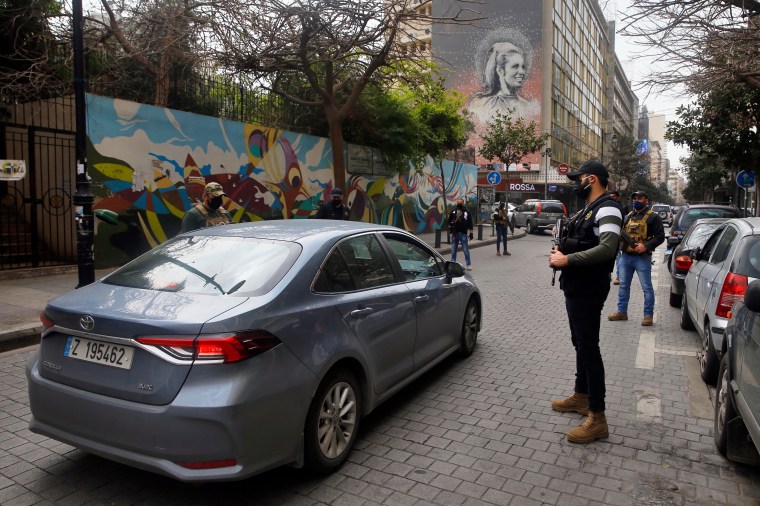New York, July 10, 2020 – Lebanese authorities should allow journalists to report from Beirut’s Hamra street and other public areas in the country without seeking prior approval, the Committee to Protect Journalists said today.
On July 6, two men who identified themselves as army intelligence officers stopped Charbel Abboud, a reporter for French public broadcaster France 24, and Maha Hoteit, a reporter for local broadcaster Asharq, on Hamra street, the city’s main thoroughfare, and told them they were not allowed to conduct interviews with passersby unless they requested prior permission from the army’s Directorate of Orientation, according to news reports, a report by the regional press freedom group Skeyes Center for Media and Cultural Freedom, and a video interview with Abboud posted on his employer’s website.
Hamra street has recently been the site of anti-government protests over the decreasing value of the Lebanese pound, according to news reports.
“Lebanese authorities must stop harassing journalists reporting from Beirut’s Hamra street, and allow the press to cover the news and interview people freely,” said CPJ’s Middle East and North Africa representative Ignacio Miguel Delgado. “Army intelligence officers should not be interfering with civil society and press freedom, and should instead be working to keep journalists safe.”
Abboud said in his interview with France 24 that the officers “requested my ID and my press card and they took pictures of them. I objected and told them that I had been working as a journalist in Lebanon since 2001 and what they were doing was illegal, especially since they were in plainclothes and were not authorized to do so.”
“I reached out a colonel working for the army’s Directorate of Orientation, who told me that in view of the current situation in Lebanon, there are new procedures in place,” Abboud said.
Maha Hoteit was quoted by Skeyes as saying that she was filming along with a camera operator, whose name she did not provide, when a plainclothes officer approached them and identified himself as army intelligence.
“We asked him to produce his badge and he confirmed he worked for army intelligence. He told us we were not allowed to shoot video without permission from the Army’s Directorate of Orientation,” she said. “He said that this procedure is new and applies all across Lebanon. He allowed us to continue to shoot on the condition that we request permission in the future.”
On July 8, the London-based news website Al-Araby al-Jadeed cited an anonymous source within the Directorate of Orientation saying that journalists are required to submit a written request to obtain a permit, and that the request must include their name, phone number, the time and location where they intend to film, the topic they seek to cover, and the purpose of the reporting. That source said the requirement was not new.
The army’s website features a form for requesting a filming permit, but does not state that permits are required for reporting in any specific areas.
Five Beirut-based journalists told CPJ today that they had never before been required to request permits from military intelligence to film in public places in Beirut, including Hamra Street.
When contacted for comment via messaging app today, army spokesperson General Ali Kanso forwarded CPJ a July 7 statement from the Ministry of Information alleging that the France 24 crew had not obtained the necessary license to work in Lebanon.
Kanso did not reply to CPJ’s questions about regulations restricting journalists’ abilities to report from Hamra street.
